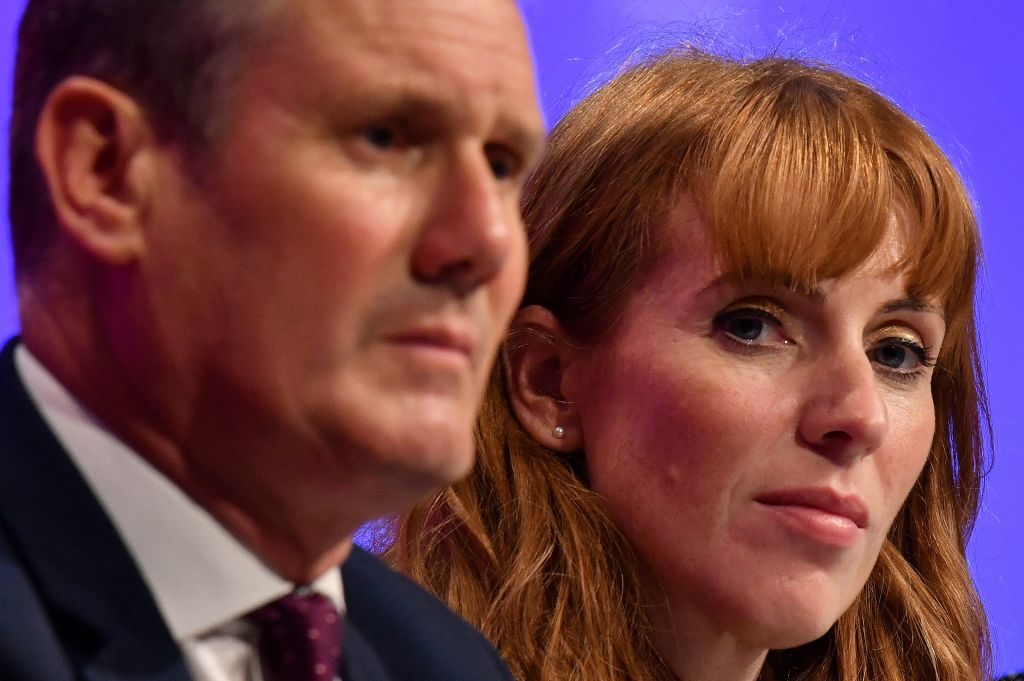Last week was a torrid one for Labour’s shrinking base of supporters, as Keir Starmer’s operation spiraled into disarray following an all-out briefing war between Number Ten and Health Secretary Wes Streeting. To add insult to injury, just days later Chancellor Rachel Reeves performed a screeching U-turn on her heavily trailed tax-raising measures in a Budget that is yet to be delivered, confusing even seasoned observers and sending bond markets into panic mode.
It’s therefore no surprise that Angela Rayner’s name is now being heavily touted as the potential replacement for a beleaguered prime minister. After an extended period of what feels like a perma-crisis stretching back to Downing Street’s ill-fated, post-summer recess “phase two” launch, new leadership chatter isn’t hard to come by. Labour demands respite from its growing list, and a pivot towards the former housing secretary would represent a retreat into the party’s comfort zone.
Although Rayner resigned as deputy leader of Labour only two months ago — over a scandal involving £40,000 of unpaid stamp duty — she is nevertheless liked by members, who are the ultimate decision-makers in any contest. Just prior to her ousting as deputy leader and deputy PM, she polled as the second-most popular Cabinet minister among the rank and file, just below Ed Miliband.
That tells us something about the political proclivities of the membership, and Rayner is viewed as a talisman of the party Left. She was endorsed for her elected deputy position by Momentum way back in 2020, and she served in shadow cabinets for almost the entirety of the Corbyn era. She also cuts an unusual figure among Labour parliamentarians: charismatic and personable, she doesn’t speak like an over-rehearsed politician and is genuinely working class. Having left school pregnant at 16, she rose through the ranks of the trade union movement as a care worker, rather than taking the now well-trodden path from Russell Group campuses to think tanks and corporate consultancies, and then on to Parliament.
But how would a Rayner ministry look? In Get In, Patrick Maguire and Gabriel Pogrund’s 2025 account of Starmer’s journey to power, it is claimed that the then deputy almost had a chance to run against her leader in the wake of the 2021 Hartlepool by-election defeat. “The GMB and CWU [trade unions] would have endorsed her,” wrote Maguire and Pogrund, with a “platform of high tax, high spending ‘Scandinavian social democracy’” coupled with “the cultural conservatism of Blue Labour, with tough lines on crime and immigration”.
Rayner is known to favor more social-democratic interventions in the economy, spearheading the Employment Rights Bill which originally included provisions for the introduction of sectoral collective bargaining across swathes of the labor market. But despite her union background, in July she was suspended by Unite, the country’s largest union, over her refusal to back Birmingham’s bin strikes. Her transition from a focal figure of the Corbynite hierarchy into a symbolic Left pole within the Starmerite front bench demonstrates a pragmatic, protean streak that serves skilled politicians well.
Like Miliband, Rayner’s electoral coalition would likely be based on the constitution of an informal, anti-Farage “progressive alliance”, winning back Greens and Liberal Democrats into the Labour fold with positive, Left-liberal messaging. She is probably better-placed than most contenders to win back a section of Reform voters, too, if she can leverage her more down-to-earth, combative credentials — an antidote to the bland, technocratic managerialism that repels voters on the populist Right.
And yet Rayner — as well as Streeting, Miliband, Home Secretary Shabana Mahmood, or any of the other contenders for PM — would soon be faced with the same seemingly intractable problems confronting a dithering Starmer. There’s an unenviable fiscal situation compounded by demographic pressures, as well as geopolitical and trade shocks. There are shattered state capacity and broken services in every direction. There’s still sky-high legal and illegal migration, with many core sectors of a moribund economy reliant on the former. And, perhaps most importantly, there are depleted reserves of patience within a restive electorate flirting with a Faragist insurgency.
Grappling with the deep, structural crises facing the British polity will require a profound rupture with Labour’s half-century experiment in market-liberal globalization. The party is tired, devoid of ideas and alternatives after less than a year and a half in office. Solving that problem is no mean feat for Rayner, or anyone else.











Join the discussion
Join like minded readers that support our journalism by becoming a paid subscriber
To join the discussion in the comments, become a paid subscriber.
Join like minded readers that support our journalism, read unlimited articles and enjoy other subscriber-only benefits.
Subscribe